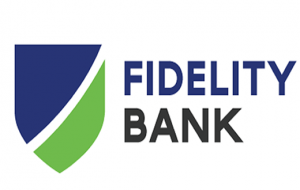Fidelity Bank’s Remarkable Q1 Growth: What It Means for Nigeria’s Banking Sector

Fidelity Bank has set a new benchmark for financial performance in Nigeria’s banking landscape. Its first quarter results for 2025 reveal impressive gains in profitability and asset growth. In this article, we delve into the factors behind Fidelity’s strong showing, the strategies powering its momentum, and what these achievements mean for investors and the broader Nigerian economy.
Fidelity Bank’s Q1 Standout Results
In Q1 2025, Fidelity Bank reported a pre-tax profit leap of 167.8%, reaching N105.8 billion, compared to N39.5 billion in the same period last year. This remarkable growth is underpinned by a 64.2% year-on-year increase in gross earnings, now totaling N315.4 billion. The core driver is Fidelity’s robust expansion in earning assets, which rose by 38.6% year-on-year. The bank’s leadership attributes these stellar results to a resilient business model and a keen focus on diversifying income streams.
Want a detailed breakdown? View the full analysis of Fidelity Bank’s Q1 profit on Businessamlive. The report highlights the surge in interest income and the strategic shift towards low-cost deposits—now 92.2% of total deposits.
Key Growth Pillars
Several strategies have powered Fidelity’s outstanding Q1 performance:
- Digital Banking Expansion: Serving over 9.1 million customers, Fidelity continues to leverage digital platforms, making banking services more efficient and accessible.
- Foreign Exchange and Trade Finance: The bank saw a substantial increase in non-interest revenue, credited to foreign exchange transactions and commissions from trade finance activities.
- Risk Management: A notable reduction in the cost of risk, down from 1.5% in the previous financial year to just 0.6%, reinforces the strength of Fidelity’s risk controls.
Explore Fidelity Bank’s unaudited financial statements for Q1 2025 on Proshare for a comprehensive look at its financial health.
Letters of Credit and Commission Growth
Trade finance remains a vital element of Fidelity’s growth. The bank saw a significant 23% upturn in letters of credit commissions. This surge was powered by innovative initiatives and increased transaction volumes. According to Nairametrics, these results demonstrate how focused strategies can drive sustainable, non-interest income growth—lessons other financial institutions can learn from.
Implications for the Nigerian Banking Industry
Fidelity’s performance signals rising confidence and competition in Nigeria’s banking sector. An increase in both local and foreign currency deposits, alongside steady loan and advance growth, suggests growing trust in Fidelity’s services. The focus on financial diversification and digital transformation could inspire other banks to innovate and fortify their market positions.
Conclusion: Fidelity’s Path Forward
Fidelity’s 2025 Q1 performance reaffirms its status as a leader in Nigeria’s dynamic banking sector. By blending asset growth with technological innovation and tight risk controls, the bank is well-positioned for continued success. As the year unfolds, investors and customers should watch Fidelity’s next moves, which could shape broader industry trends.
For in-depth coverage and the latest updates, refer to Businessamlive’s full Q1 report and explore additional insights on Proshare and Nairametrics.